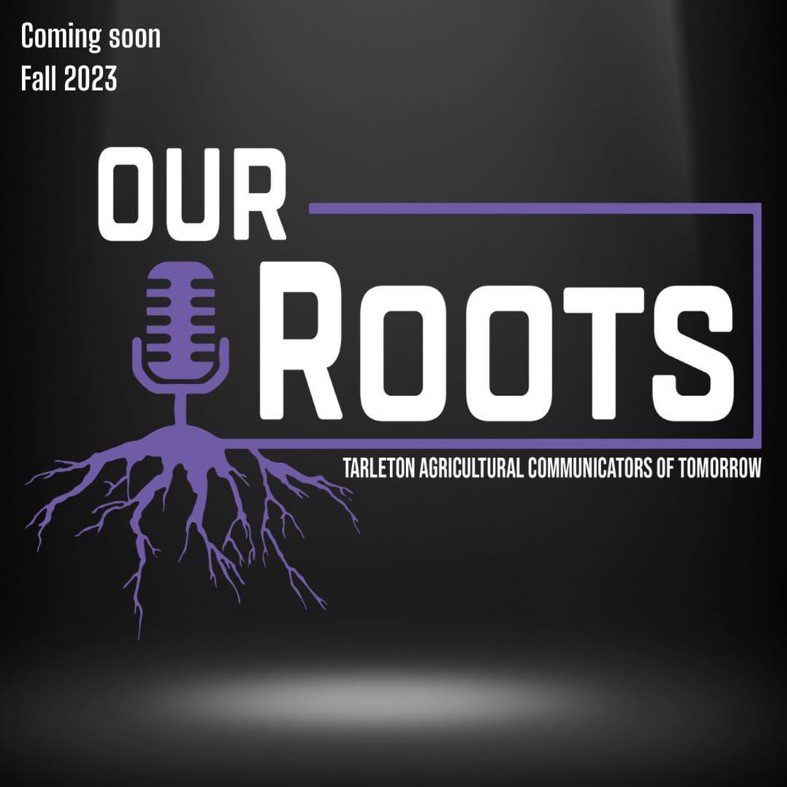By: Charlize Bloem
Podcasting has become popular in recent years as a media outlet with the power to share conversations, debates, entertainment, and information over any topic on an audio platform. Taylor Kennedy, an Agricultural Communications professor at Tarleton State University, teaches a podcasting class.
As a part of the class, students record an episode to put on the college’s podcast, Our Roots. The podcast started because professors at the college believed there was “a need for servicing the industry,” Kennedy said. The podcast becomes mutually beneficial for the hosts of the podcast and its listeners.
While college students learn what goes into making a podcast episode, listeners learn about what is happening in the world of agriculture. Students are encouraged to use this platform to educate and advocate for agriculture.
Taylor Kennedy was asked to take over the podcast because of her video and audio production background. Covid took a toll on the way the students worked on projects like Our Roots, so a break was taken from uploading episodes. After classes returned in person, Kennedy said she “had a really strong group of people in the Agricultural Communicators of Tomorrow club” who desired to get the podcast running again.
She then decided to incorporate a set of guidelines so students in the agriculture podcasting class can feature their episode on Our Roots.

The podcast was built on the idea of servicing the industry, and that is what Kennedy encourages her students to do. According to Kennedy, the goal is to educate listeners on agriculture
while “entertaining, like a friend telling you.” Being entertaining in a podcast is important because it keeps the audience interested enough to keep listening to as new episodes release.
The importance of the podcast comes from the fact that “Ag is always changing,” and in return “you should always be learning.” The goal for building an audience is to reach beyond the college and towards Stephenville. The hope of this goal is for people to feel comfortable listening to the podcast on an “organic term,” or without feeling like they need to have knowledge of agriculture to understand the discussion.
Releasing episodes for the podcast can be challenging. Many students in the agriculture podcasting class have never recorded a podcast before. The hardest thing for Kennedy in her position is “the technology gap.”
With limited technology, groups in the agriculture podcasting class are forced to take turns on what week they record their episode. Kennedy believes the limited technology is hard on students too. It can be hard “learning how to work with a teammate and then plug into a place where you might not have access to a lab computer,” especially because there typically is not access to one in a real job setting.
Despite these challenges, Kennedy is able to educate students how to communicate through podcasting, and students learn how to educate and advocate to the public about agriculture.
*Article submitted in ACOM 3314 – Writing & Editing